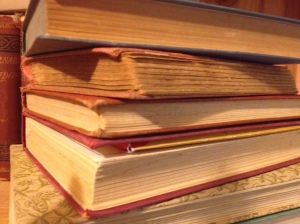Ross was born in 1939 in Canowindra. He was the third of four siblings, John, Colin, Robyn and brother also to his foster sister, Jen. He was brought up on the family farm at Eugowra, enjoying the farm work life, combined with his love of fishing and shooting.
Initially he attended the local school at Paytons Bridge, and then he went to Eugowra Central school before moving on to Yanko Agricultural College. Unfortunately, he had to leave Yanko at the age of 16 after the death of his grandfather, so that he could help his father and brothers run the farm. His own father’s untimely death at the age of 61 in 1969 made his hard work on the farm even more necessary.
Ross was very involved with the Church when he was young, as an altar boy and also a choir member. He met his future wife, Pamela at a Church Camp in 1961. They were married in Orange in 1963 and their first child Deborah was born in 1964, followed by David in 1965, and Carol, who was his birthday present in January 1968.
In 1972, tragically, Ross’s wife Pam passed away, leaving Ross with three small children aged 4, 6 and 8 to raise. Ross’s mother Beryl stepped in to help Ross with the children, and with her help, Ross and the children continued to live at on the farm.
The children remember being taken by Ross, no baby sitters for him, to most of his activities, of which he had many! Ross was an active member of Apex, becoming President for a time. He later joined Rotary, and was also very active there, and he followed his father into the Masonic Lodge. He was in the Rural Fire Brigade, recently being honoured for 50 years service.
He was also involved with the Eugowra Show Committee. He was very proud that his family still continues his interest in this area. Both his daughters, and granddaughter Lydia, had the honour of being Miss Eugowra Showgirl, and David and his family are actively involved in the Show Society, working at the Royal Agricultural Show in Sydney every year.
On top of all these activities, he was a keen sportsman. In his young days he took part in competitive clay pigeon shooting, played tennis and was a member of the rugby league team. He was an enthusiastic cricketer and opened the bowling for Eugowra when they won the prestigious Grinstead Cup. Later he became a good golfer, spending a lot of his time at the Eugowra Golf Club, where he took on every job going, from barman and bouncer to President. His fishing was also a great love, and for many years he made an annual trek to the Top End with his mates for Barramundi fishing, coming home each time with a huge freezer full of fish.
In 1991 Ross’s first grandchild, Lydia, was born to David and his wife Cindy, followed by Martin in 1994. Then Deb and Paul had their son William in 2000. These three grandchildren were Ross’s pride and joy as he watched them growing up. He was so proud of Lydia’s achievements at school and university, of the love Martin shared with him for the farming life and his sports, and of Will’s school achievements, especially his music. Every time Ross came to Deb’s for Sunday roast, he would ask Will to get out his clarinet and play him a tune.
He was also proud of his children’s achievements as Deb continued her working life in Orange, Carol her life and work in Canberra, and as David joined his father working on the farm.
As you can see , Ross was always a busy man. Busy in the community, busy with his kids and his extended family, but most of all busy with the farm. The farm was Ross’s life and it was a 7 day a week, 365 days a year job, season to season, year to year. Occasionally he took a holiday, and did a weekly grocery run, but mostly he was on the farm, the place he loved the best in the world. In recent years he had slowed down, but his interest in the farm never wavered. Any activity on the farm that he couldn’t see from the verandah, he wanted to hear about from David on his daily visit. Everything was then noted in his diary.
Ross, despite his size, his booming voice and huge presence, was an unassuming man, a very kind, soft and gentle person, with a dry sense of humour. He was always ready for a yarn. He listened to what others had to say, and, even if he did not agree, he never judged. Somehow he always found the right words to offer advice or help as necessary.
Although his sudden and untimely death did not take place where he might have wanted to be most, on his farm, there is comfort in the fact that he was with his sister Robyn and her family in Albury, where he always liked to visit, and he was not alone as he passed from this world.
Ross was a very big guy in all ways. He was a very big man with a very big heart, and his passing leaves a huge hole in all our lives. He will be so sadly missed. As a Dad to Deb and Paul, David and Cindy and to Carol; as Rosco to his grandchildren Lydia and Marty and Poppy to Will; as a brother to Colin, Robyn and Jen, but, to all of us, as the greatest of mates and a really great bloke. We all miss you, Ross.



